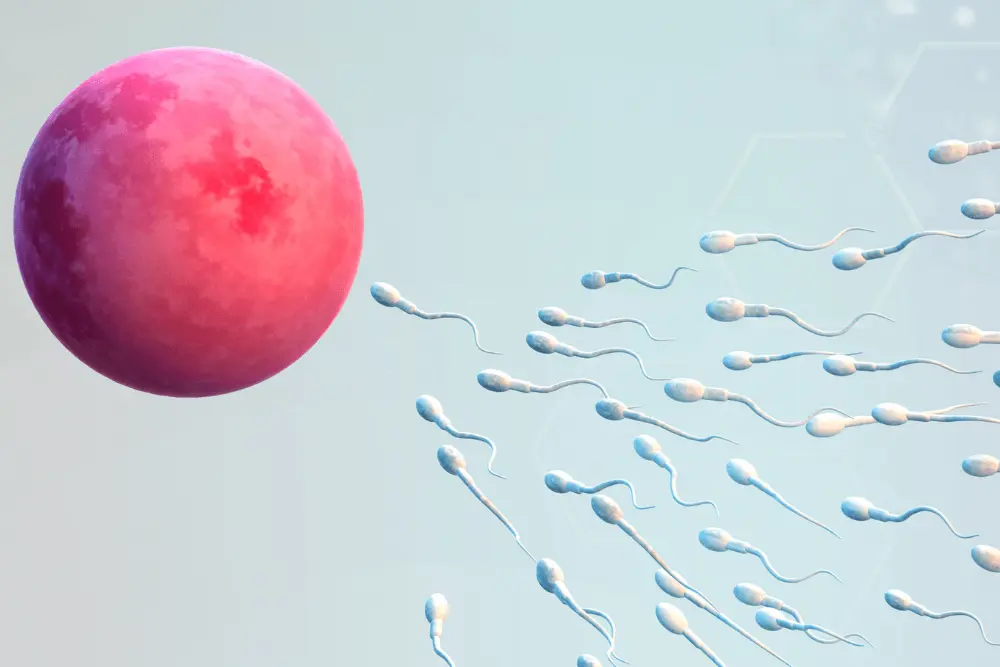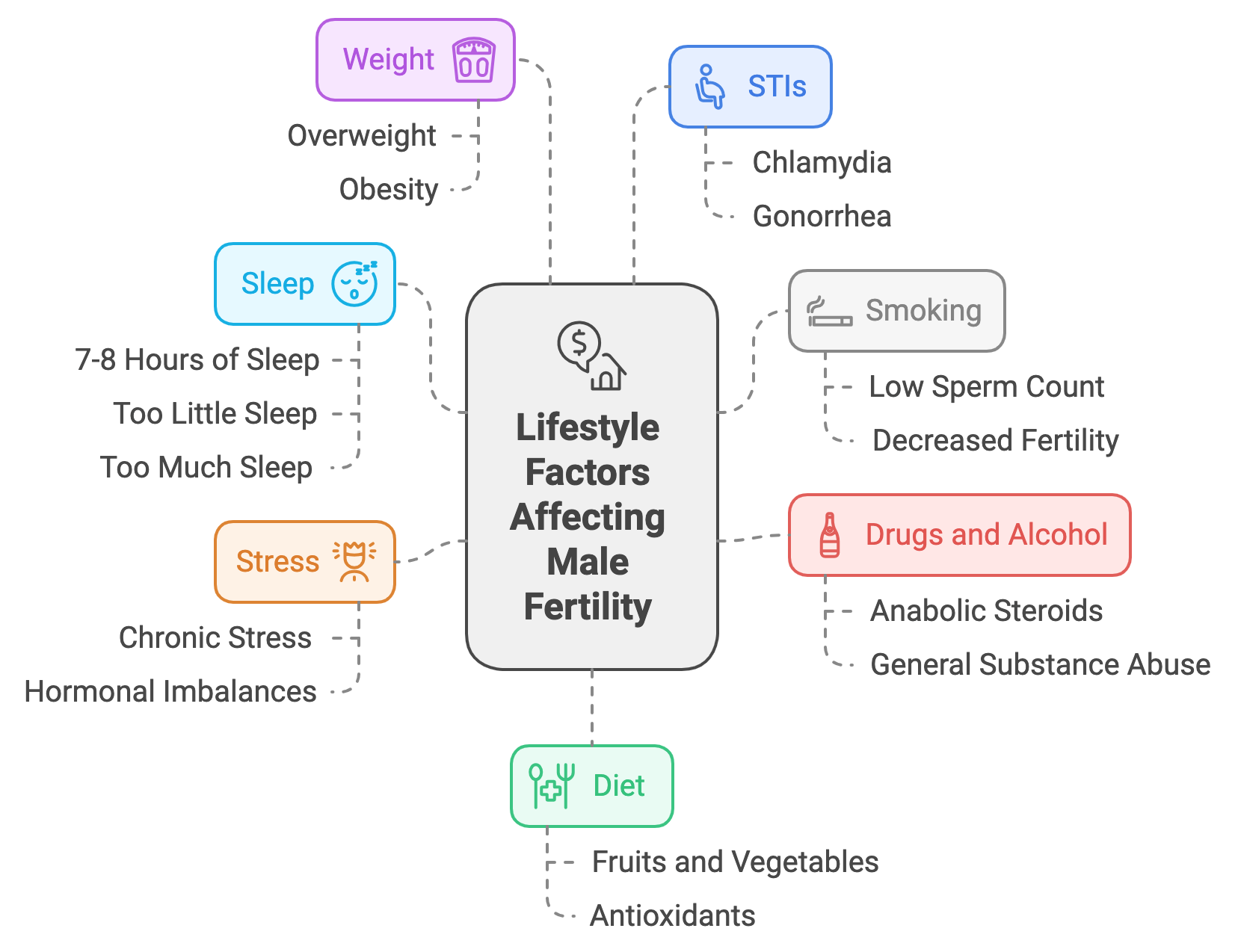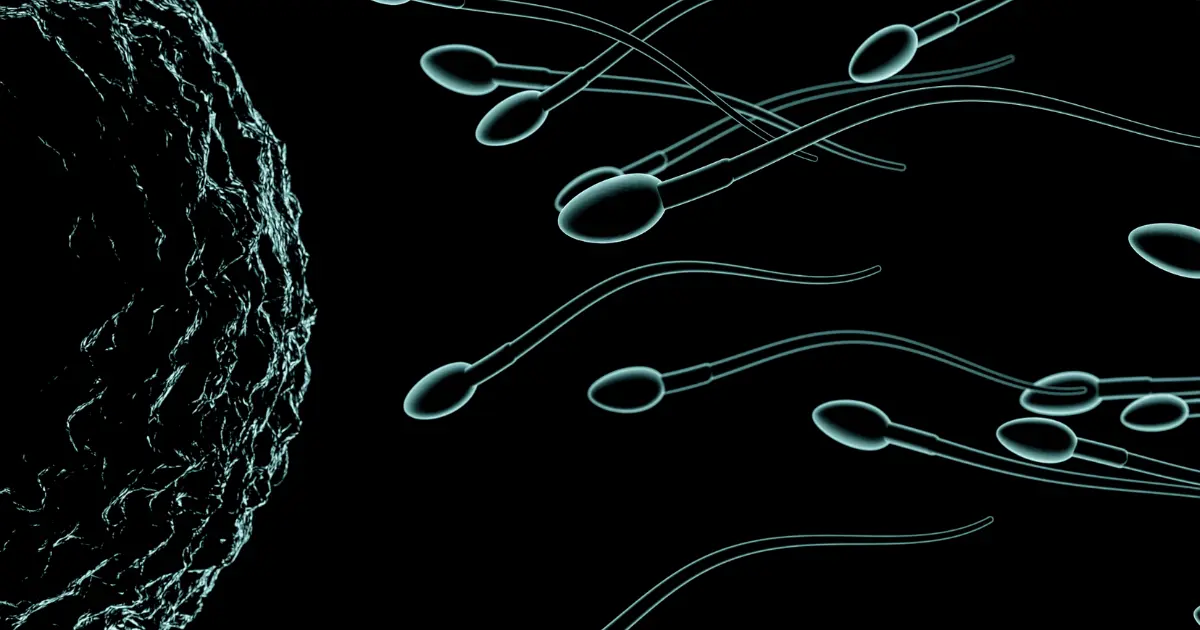Family planning is a personal and emotional experience for people of any gender. Much of the discussion surrounding fertility is based on the female experience, but the truth is that male fertility deserves just as much attention. Infertility rates are on the rise, and it’s estimated that male infertility contributes to 40-50% of cases where a couple is struggling with infertility. The male role in family planning can not be ignored.
This post will unlock some key concepts behind male fertility, including azoospermia, fertility preservation, and lifestyle factors.
What is infertility?
First, let’s define infertility. Infertility is defined as the inability to achieve a pregnancy after a year or more of regular, unprotected sexual intercourse. Infertility may occur because of issues with the female reproductive system or the male reproductive system, or sometimes the reasons are unexplained. Infertility can be a major cause of psychological and emotional distress for those affected.

How is a natural pregnancy achieved?
Pregnancy begins when a healthy sperm fertilizes an egg in a woman’s fallopian tube. This is called the moment of conception. Sperm count and quality are crucial to achieving a successful pregnancy naturally. Several factors contribute to sperm health, including sperm count, structure, and motility.
What is azoospermia?
Azoospermia is a condition where a man’s ejaculate (semen) contains no measurable sperm. Around 1% of men have azoospermia, and it’s a primary cause of male infertility.
How is azoospermia diagnosed?
Azoospermia is diagnosed through semen analysis, which offers a fundamental overview of sperm quantity and quality. If, on two or more separate occasions, your semen analysis shows no sperm, you are considered to have azoospermia. Most men don’t realize they have azoospermia until trying unsuccessfully to achieve a pregnancy.
What causes azoospermia?
An obstruction or blockage most commonly causes azoospermia but can be due to other factors like genetics or hormonal imbalances. Some men are born with azoospermia, but it can also develop into a teenager or adult.
Can I get pregnant if my partner has azoospermia?
Yes, you may still be able to get pregnant naturally if your partner has azoospermia. Depending on the cause, azoospermia is treatable. In some cases, your partner may require surgical sperm retrieval and in vitro fertilization (IVF) is the only option. Be sure to discuss your family planning options with your healthcare provider.

How can azoospermia be treated?
The treatment for azoospermia depends on its cause. Treatments might include:
- Surgery to unblock tubes or reconstruct and connect ones that aren’t allowing sperm to flow through
- Prescription hormone treatments, if lack of hormone production is the main cause
What is fertility preservation?
Fertility preservation is the process of saving eggs (in females) or sperm (in males) so they can be used to have biological children. Men can benefit from fertility preservation in certain situations that might affect their future fertility, for example, if they are about to undergo chemotherapy or radiation for cancer.
Sperm banking is the recommended process for male fertility preservation. With sperm banking, sperm is collected and kept frozen. Cryopreservation uses very low temperatures to preserve structurally intact living cells and tissues for a long period. Under the right conditions, sperm may be stored indefinitely. When pregnancy is desired, the stored sperm can be thawed and used in conjunction with fertility treatments such as intrauterine insemination (IUI) or IVF.
What are some lifestyle factors that can affect male fertility?
Lifestyle can have a significant impact on our overall health, and that includes fertility and sperm health. Here are some lifestyle factors that can affect male fertility:

- Smoking – Men who smoke cigarettes are more likely to have a low sperm count than those who don’t.
- Drugs and Alcohol – Drugs and alcohol lower sperm count in males. In particular, taking anabolic steroids (commonly used by bodybuilders looking to gain muscle quickly) is recognized as one of the leading causes of male infertility.
- Stress – Chronic stress can cause hormonal imbalances within the body, which may affect us in various ways. This includes a negative impact on male fertility.
- Weight – Being overweight or obese poses a wide range of health risks and can cause decreased testosterone levels in men, impacting their fertility.
- Sexually Transmitted Diseases (STIs) – Some STIs (such as chlamydia and gonorrhea) can cause infertility in men. Always practice safe sex or remain in a mutually monogamous relationship with an uninfected partner.
- Diet – Eating a balanced diet, full of fruits and vegetables containing antioxidants, helps to support all of the body’s functions, including maintaining healthy sperm.
- Sleep – Too little (or too much) sleep can negatively affect male fertility. Aim for 7-8 hours of sleep a night.
Many couples face challenges when it comes to fertility, and things rarely go as planned. Contact us today at Men’s Health Clinic Manitoba for more information about our family planning services.






